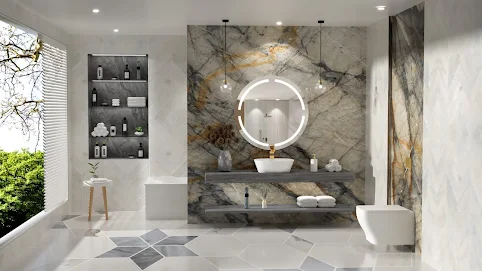Cleanliness Comfort: Sensor Tap and Urinal Sensor for Any Environment
Hygiene and convenience are non-negotiable in the modern age, especially in restroom environments. Sensor Tap and urinal sensors have revolutionised restroom technology, offering a touchless, user-friendly experience that is both practical and eco-friendly. Whether installed in homes, offices, or public spaces, these devices cater to diverse needs, ensuring cleanliness, comfort, and efficiency.
The Rise of Sensor Technology in Restrooms
Sensor-based solutions are no longer confined to high-end
spaces; they have become mainstream due to their unparalleled benefits. Unlike
traditional fixtures, these advanced systems rely on motion or proximity
detectors to activate, ensuring a touchless experience. This technology enhances
user comfort and aligns with global efforts to improve sanitation and resource
management.
The Benefits of Sensor Taps
- Unmatched
Hygiene
Traditional taps often become breeding grounds for germs, as users touch the handle before and after washing their hands. Sensor taps significantly reduce the risk of cross-contamination by eliminating the need for physical contact. - Water
Conservation
Sensor taps dispense water only when hands are detected, preventing wastage. This feature can reduce water usage by up to 70%, making them an eco-friendly choice for environmentally conscious establishments. - Modern
Aesthetics
Available in sleek and stylish designs, sensor taps enhance the overall look of restrooms, blending functionality with visual appeal. - Durability
and Longevity
Designed with robust materials and fewer moving parts, sensor taps require minimal maintenance and have a longer lifespan than traditional faucets.
The Importance of Urinal Sensors
- Automatic
Flushing for Optimal Cleanliness
Urinal sensors ensure that each use is followed by a proper flush, maintaining cleanliness without manual intervention. This is particularly vital in high-traffic restrooms. - Energy
and Resource Efficiency
Advanced Urinal Sensor allow controlled flushing based on user proximity or usage frequency, helping to conserve water and reduce operational costs. - Improved
User Experience
With touchless operation, users enjoy a hassle-free experience, increasing satisfaction in commercial spaces such as malls, airports, and restaurants. - Compliance
with Sanitation Standards
Many industries require adherence to strict hygiene standards. Sensor-based urinal systems help businesses meet these criteria effortlessly.
Applications in Various Environments
- Residential
Spaces
Modern homeowners prefer sensor taps for their convenience, safety, and energy-efficient properties. Installing them in kitchens and bathrooms adds a sophisticated touch while promoting hygiene. - Corporate
Offices
In office buildings, sensor fixtures contribute to maintaining a professional and clean environment. They also demonstrate a company’s commitment to sustainability. - Healthcare
Facilities
Hospitals and clinics benefit immensely from touchless systems, as these reduce the risk of infections and align with stringent hygiene protocols. - Educational
Institutions
Schools and universities prioritize hygiene and resource conservation, making sensor taps and urinals a practical choice for campuses. - Public
Spaces
Airports, malls, and stadiums experience high restroom traffic. Automatic Sensor Tap based systems are essential in such environments to ensure seamless functionality and hygiene.
Choosing the Right Sensor Fixtures
When selecting sensor taps or urinal sensors, consider the
following:
- Material
Quality: Opt for fixtures made of durable materials like stainless
steel or brass to withstand heavy usage.
- Power
Source: Choose between battery-operated and hardwired options based on
your infrastructure.
- Detection
Range: Ensure the sensors have adjustable ranges to suit different
environments.
- Installation
and Maintenance: Look for products with straightforward installation
and minimal upkeep requirements.
The Future of Restroom Technology
As technology continues to evolve, sensor-based systems are
becoming smarter and more versatile. Integration with IoT (Internet of Things)
allows for real-time monitoring of usage and maintenance needs, ensuring
optimal performance. Furthermore, the addition of AI-driven features, such as
predictive flushing and self-cleaning mechanisms, will redefine restroom
hygiene standards.
Conclusion
Sensor taps and Automatic Urinal
Sensor are more than just modern conveniences; they are
essential tools for promoting hygiene, conserving resources, and elevating the
restroom experience. By investing in these innovative solutions, individuals
and organizations alike can create cleaner, more efficient environments that
prioritize user comfort and sustainability.
Whether you’re upgrading a home bathroom or outfitting a
commercial space, sensor-based fixtures are the way forward—delivering
cleanliness and comfort with every use.


.png)

Comments
Post a Comment